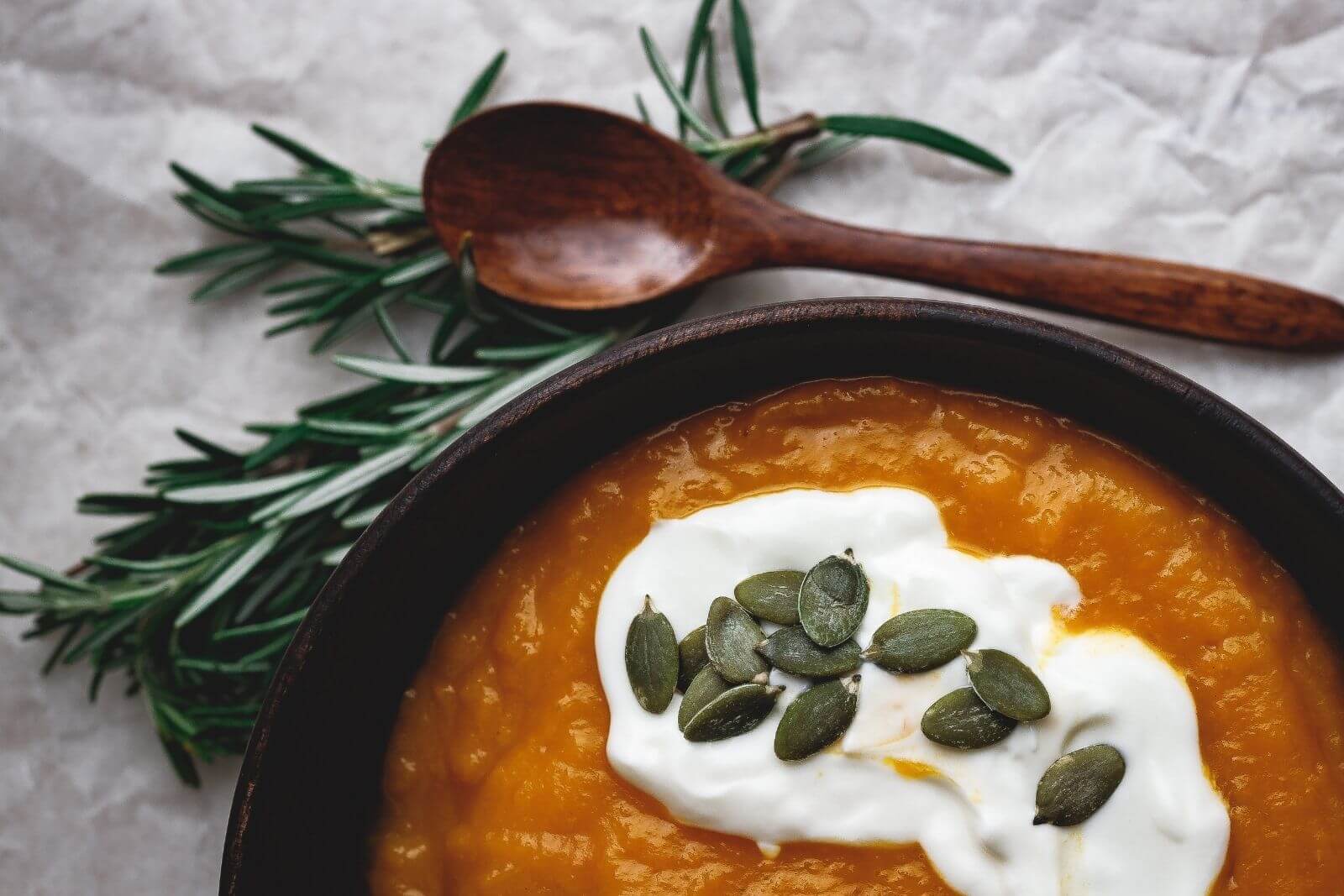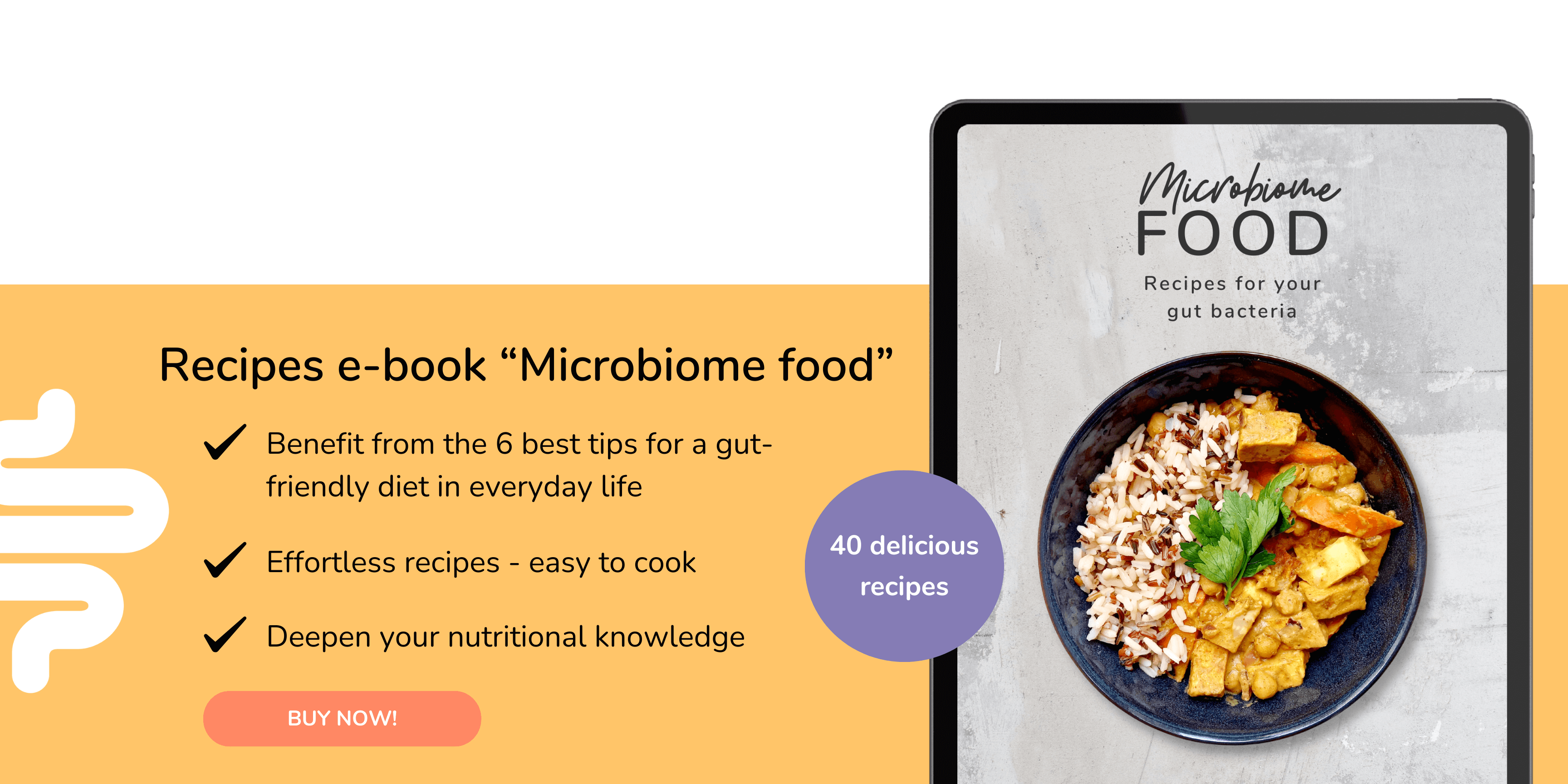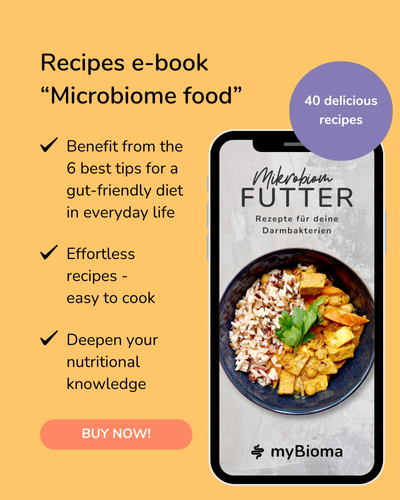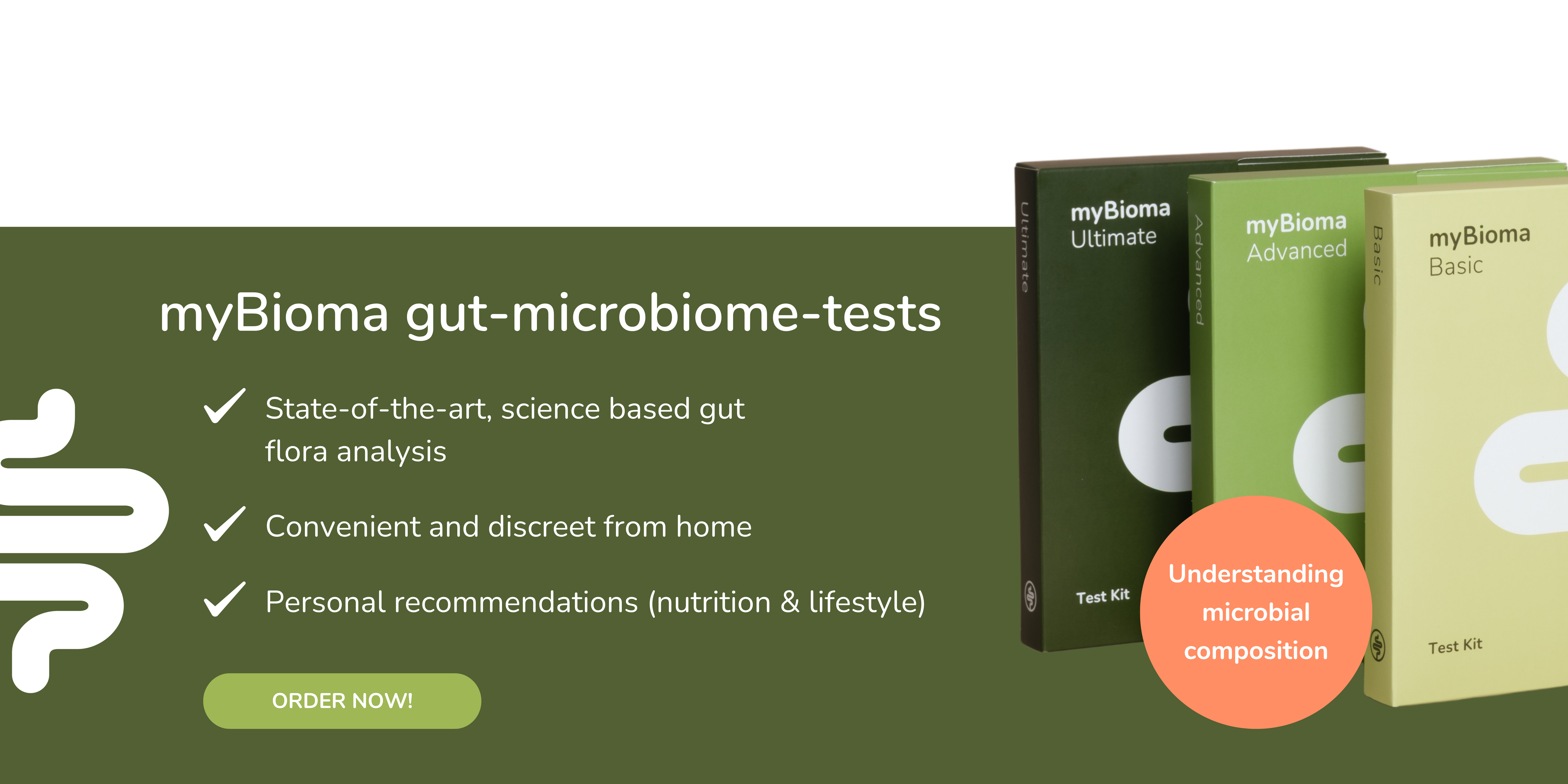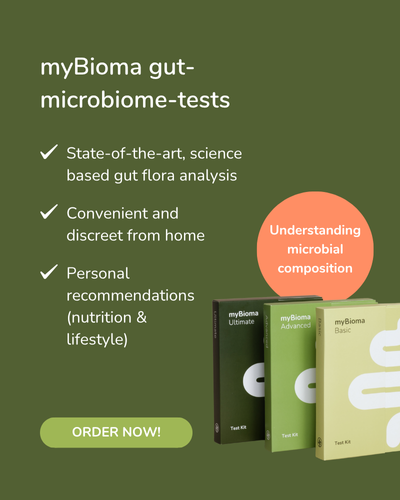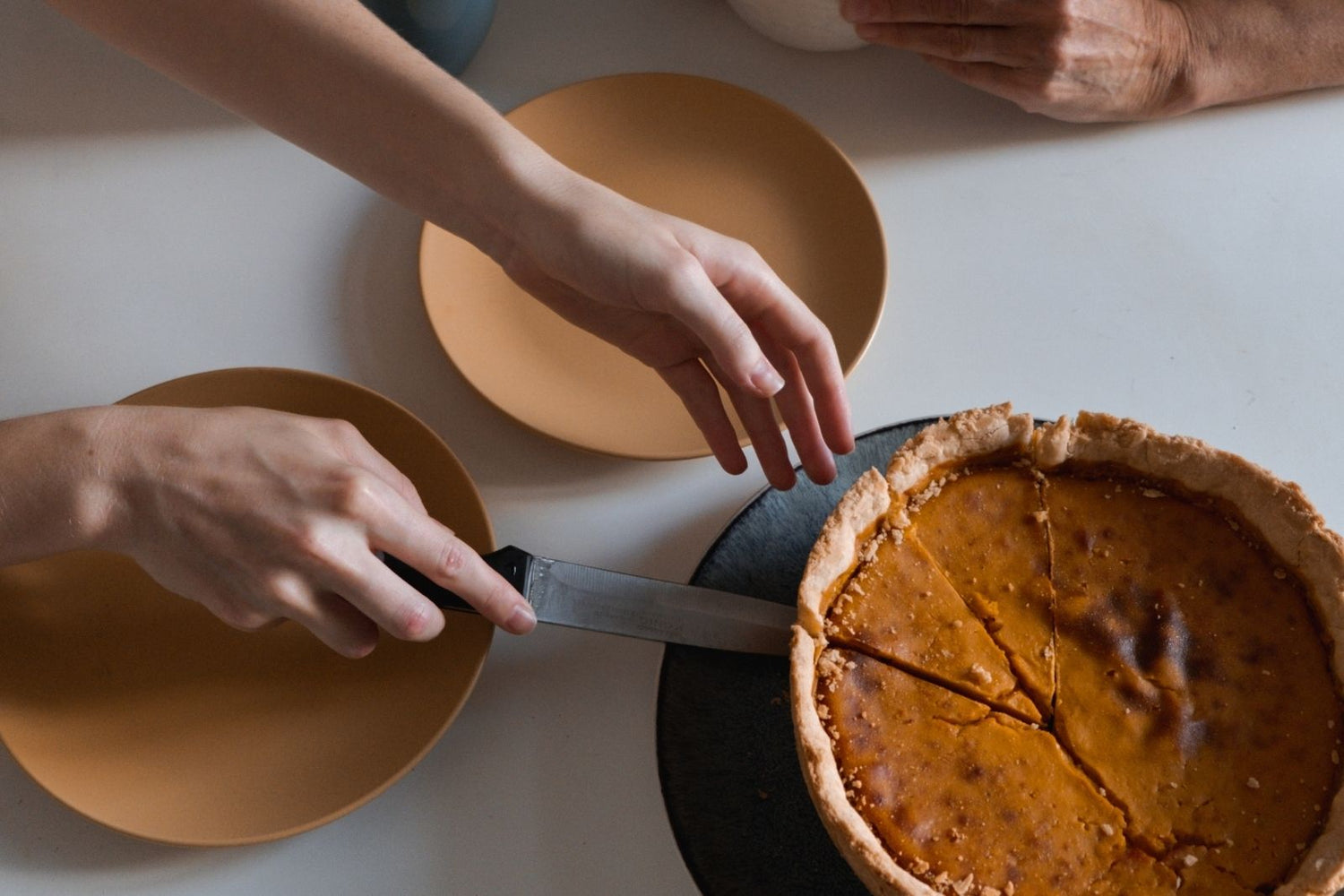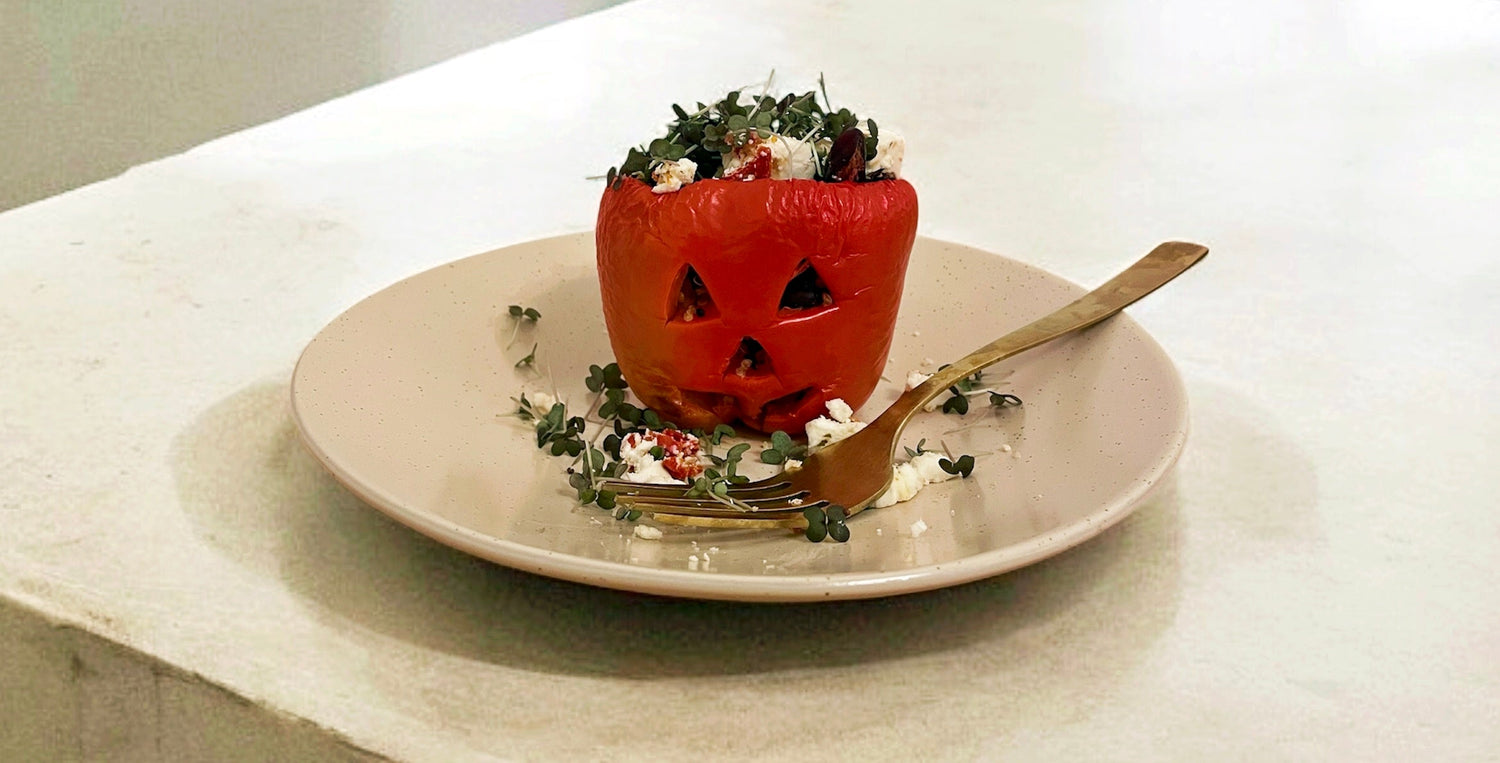Table of contents
Autumn time means soup time and sometimes also cold time. Like in ours last article As described, we can use our diet to preventively ensure that we are healthy in the long term. Since our intestinal microbiome significantly influences our health , it makes sense to choose foods that increase the good intestinal bacteria and prevent the bad ones from spreading. But we should not only prepare for the cold season preventively, but also think long term and focus on one healthy intestinal microbiome set. If you would like to learn more about the development of the intestinal microbiome and its relevance to our health well into old age, we recommend that you read our last blog article: Does the secret to healthy aging lie in the gut?
Pumpkin soup with coconut milk, turmeric and ginger: The recipe
Now it's about that Pumpkin soup recipe go. The ingredients are deliberately chosen to support a healthy intestinal microbiome and help you counteract inflammation and promote your immune system. Most of our bacteria are known to help us digestion of food help, but they also play an important role for our immune system. Find out more about how your gut is connected to your immune system and what you can do to specifically support it.
How do you make pumpkin soup?
Our pumpkin soup is prepared in a flash, tastes incredibly delicious and warms you from the inside. You can also prepare the soup in advance and either freeze or for in the fridge for a few days store. The recipe is vegan , gluten free and absolutely sure to succeed ! We'll show you step by step how to prepare pumpkin soup.
The ingredients of the pumpkin soup:
- 1 (Hokkaido) pumpkin approx. 1 kg
- 1-2 parsnips approx. 300g
- 1 tbsp coconut oil
- 1 small onion diced
- 1 garlic clove, minced
- 1 small piece of fresh ginger, chopped (alternatively 1 teaspoon powder)
- 1 small piece of fresh turmeric, chopped (alternatively 1 teaspoon powder)
- 1 can of coconut milk (400ml)
- 500ml vegetable broth (make sure it does not contain any sugar)
- 1 pinch of salt
- Black pepper to taste
- To taste: nutmeg
- Coconut yoghurt to decorate
- Coriander or parsley
- Pumpkin seeds

Antioxidants such as vitamin A and ß-carotene, which are contained in pumpkin, for example, can help counteract inflammation.
Preparing the pumpkin soup
- Remove the seeds from the pumpkin, peel the parsnips and cut both into pieces. Peel the onion and garlic and dice finely. Chop or grate the ginger and turmeric.
- Prepare 500ml vegetable broth.
- Heat coconut oil in a pot and briefly sauté the onion, garlic, ginger and turmeric until translucent. Add the pumpkin and parsnip pieces and fry briefly.
- Pour the roasted vegetables with vegetable broth and coconut milk and let them simmer for about 30 minutes until soft - season with salt and black pepper and use a little nutmeg to taste. Then puree the soup.
- Serve your soup in a beautiful bowl and refine it with a spoonful of coconut yoghurt, pumpkin seeds and coriander or parsley.
- We wish you bon appetite!
The benefits of the ingredients for your (intestinal) health:
Turmeric: The component “curcumin” has an antioxidant and anti-inflammatory effect. Turmeric stimulates the production of gastric juice and bile acids and thus supports digestion. (1,2)
Black pepper: Together with black pepper, curcumin is 2000% better absorbed in the intestines. (3)
Pumpkin seeds: Source of magnesium, which counteracts the formation of oxalic acid stones. Pumpkin seeds also contain a lot of tryptophan, an essential amino acid that can be converted into serotonin (= neurotransmitter). Tryptophan can help reduce repressive moods, anxiety and stress and increase performance. (4-6)
Coconut yogurt: Probiotic food contains different strains of bacteria that support intestinal regeneration. (7)
Onion: Prebiotic food that supports the growth of good intestinal bacteria, such as Bacteroidetes. (8th)
Tip: Find out more about the healing effects of ginger on the intestinal microbiome.

A recipe for a healthy gut: pumpkin soup with coconut milk, ginger and turmeric
What goes well with pumpkin soup?
If pumpkin soup isn't enough for you as a main course, you can make a delicious one, for example Sour Dough Bread eat with it. Be sure to pay attention to good quality when purchasing.
How long does pumpkin soup last in the fridge?
If you have made more pumpkin soup, be sure to store it in the refrigerator or freeze it. It is important to note that you should let the soup cool down beforehand. The pumpkin soup will last for around three days in the fridge, or up to three months if frozen.
Improve your health with myBioma microbiome analysis
Especially in times like these, it is extremely important to put health first. With the myBioma microbiome analysis , you get a status quo report of your intestinal health and can specifically optimize it with appropriate suggestions for improvement. We know that changing diet and lifestyle can sometimes be a challenge, but on ours Blog and Social media channels you will be constantly provided with delicious and simple microbiome-friendly recipes.
References
- Simon AK, Hollander GA, McMichael A.Evolution of the immune system in humans from infancy to old age. Proc. R. Soc. B, 282 (2015).. Doi: 20143085
- Belkaid Y, Hand TW.Role of the Microbiota in Immunity and Inflammation. Cell. 157:121-141 (2014).
- Lawley TD, Walker AW. Intestinal colonization resistance. Immunology 138:1-11 (2013).. Doi: 13:790-801
- Kamada N, Seo S, Chen GY. Nunez G. Role of the gut microbiota in immunity and inflammatory disease. Nat Rev Immun (2013). Doi: 13:321-335
- Buffie CG, Pamer EG. Microbiota-mediated colonization resistance against intestinal pathogens. Nat Rev Immun (2013). Doi: 13:790-801
- Sassone Corsi, Martina & Raffatellu, Manuela. No Vacancy: How Beneficial Microbes Cooperate with Immunity To Provide Colonization Resistance to Pathogens. Journal of immunology, (Baltimore, Md. : 1950), 194 (2015). Doi: 10.4049/jimmunol.1403169.
- Rios-Covian D., Ruas-Madiedo P, Margolles A. Gueimonde M, de los Reyes-Gavilan C G, Salazar N. Intestinal short chain fatty acids and their link with diet and human health. Frontiers in microbiology, 7:185 (2016).
- Corrêa-Oliveira R, Fachi JL, Vieira A, Sato FT, Vinolo MAR. Regulation of immune cell function by short-chain fatty acids. Clin Transl Immunologyl. 5: e73 (2016).
- Kim CH, Park J, Kim M. Gut microbiota-derived short-chain fatty acids, T cells, and Inflammation Immune Network 14(6), 277-288 (2014).


